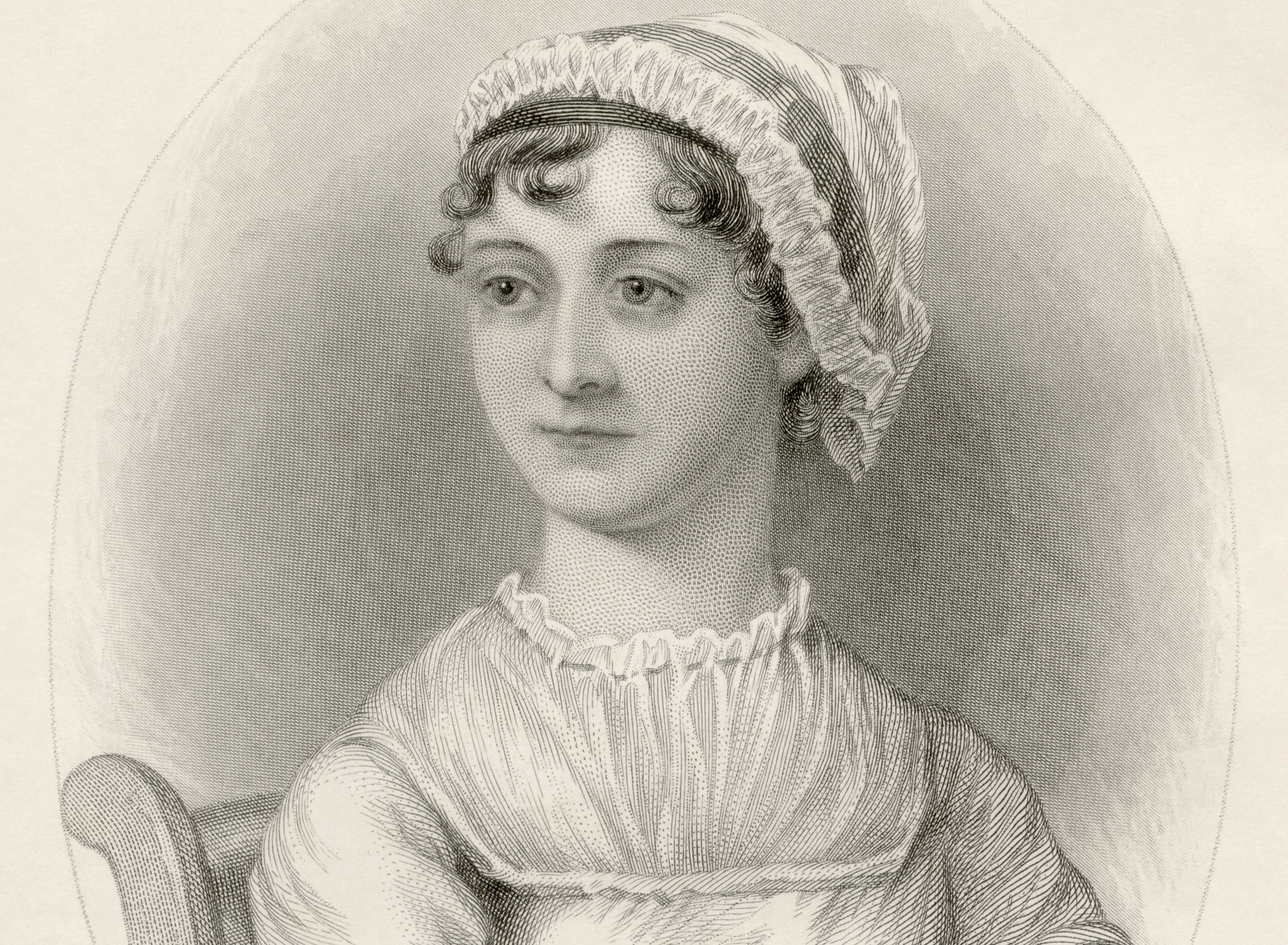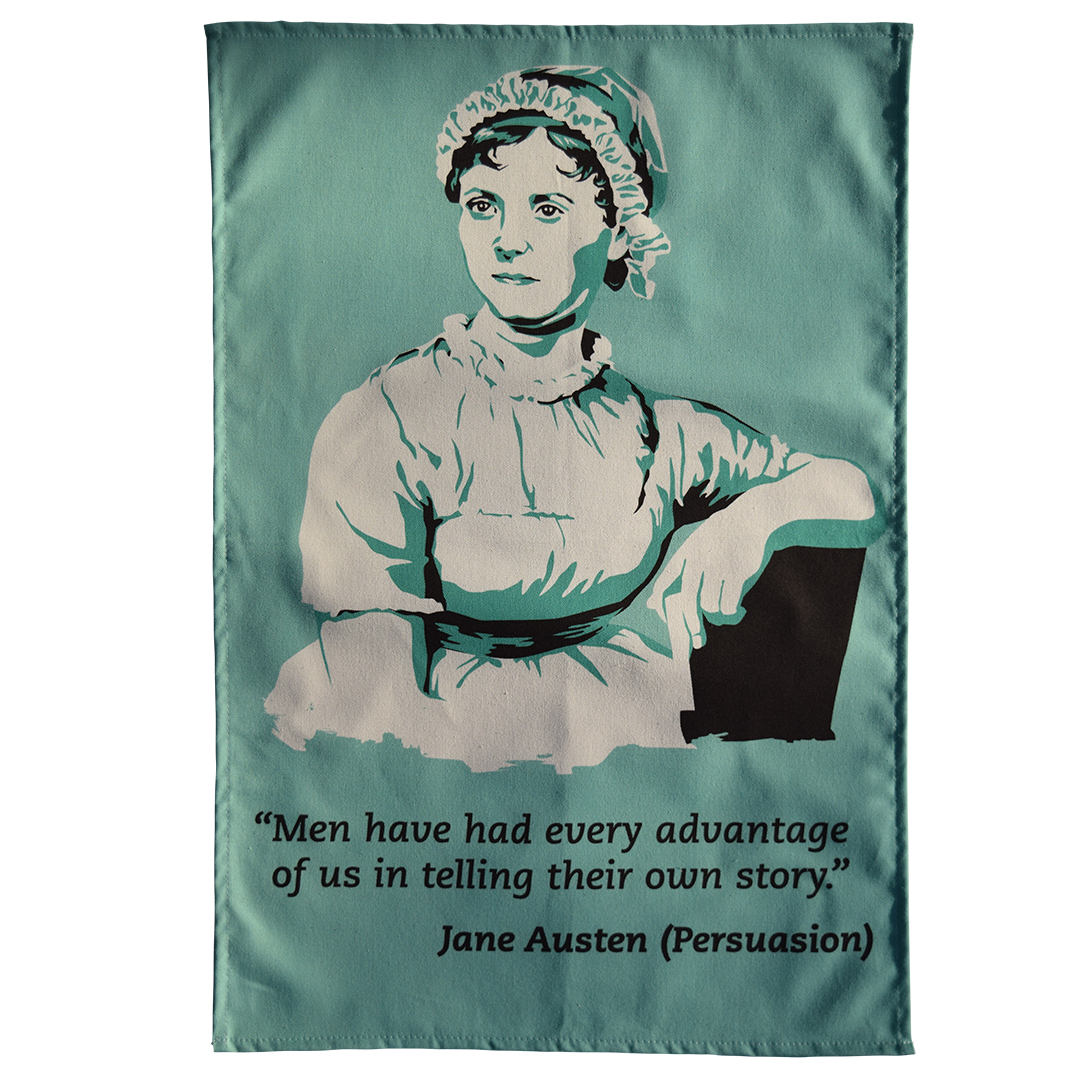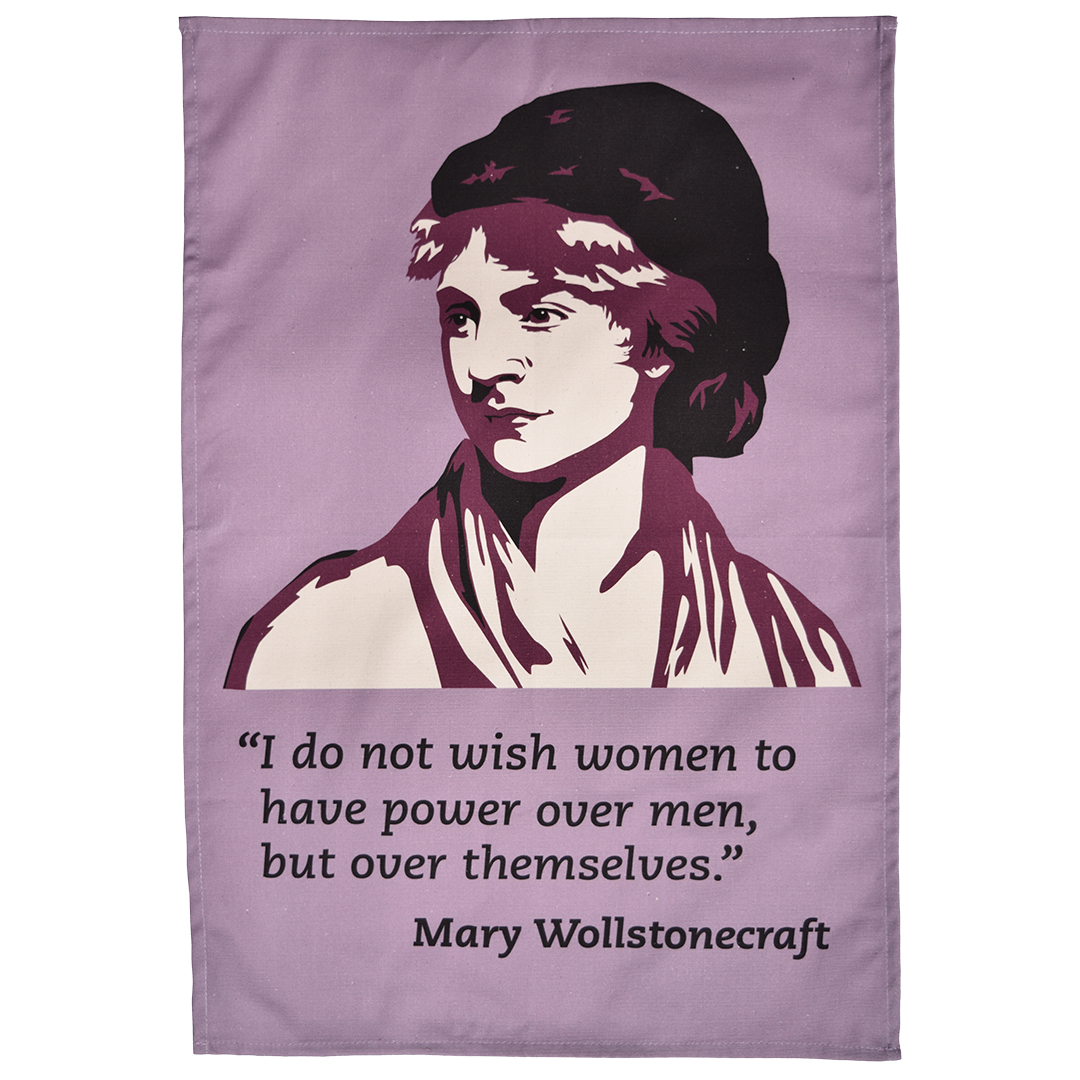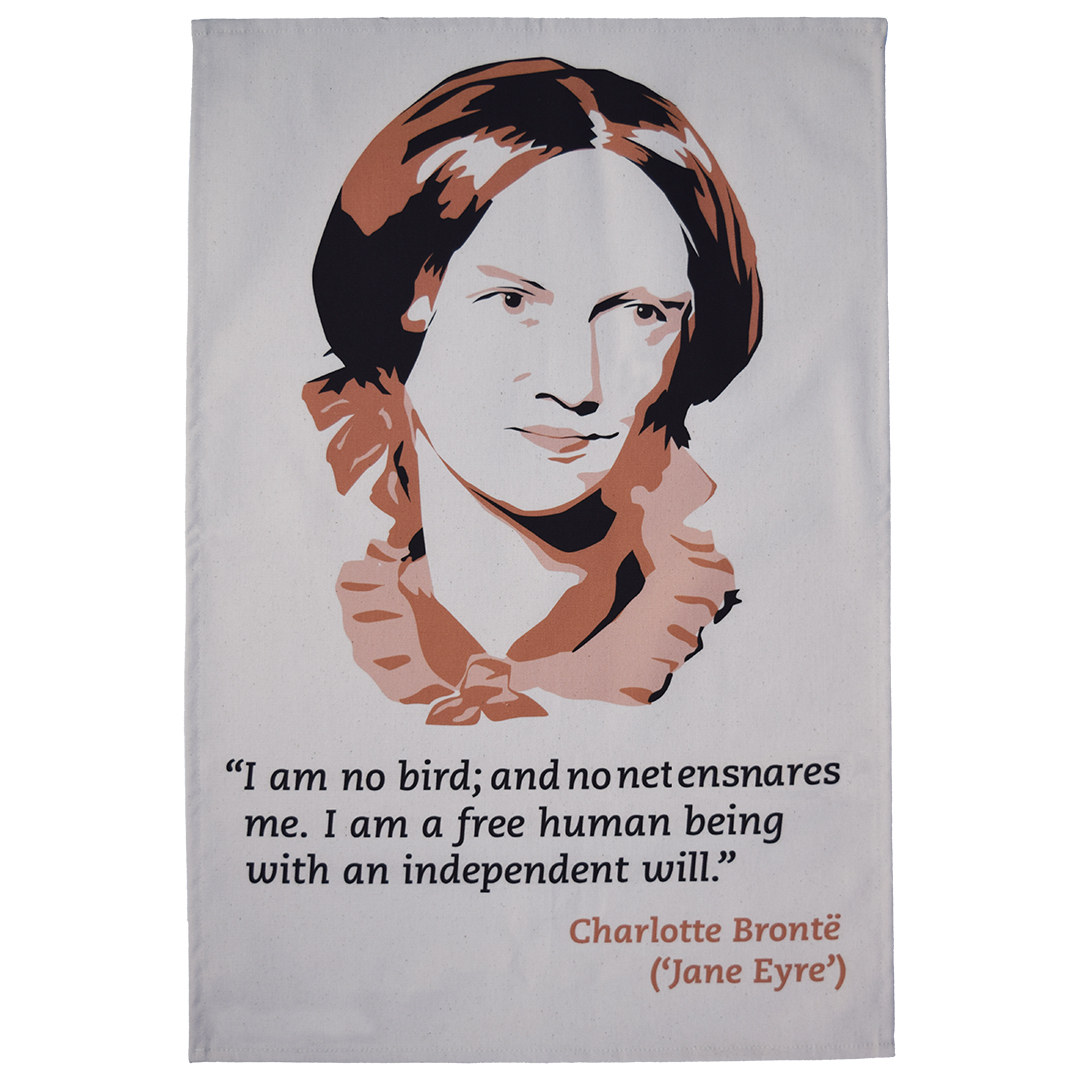Telling Her Own Story: The Life and Work of Jane Austen
Posted by Pete on 16th Dec 2022

Born on this day in 1775, Jane Austen challenged the sexism of her time - and made a living in the process
“I hate to hear you talk about all women as if they were fine ladies instead of rational creatures. None of us want to be in calm waters all our lives.”
First things first: Jane Austen, born today in 1775, was hardly a fire-breathing radical.
The same could be said of some of our other figures celebrated on our tea towels:
Christina Rossetti, Robert the Bruce, and Edmund Burke to name just a few.
Jane Austen didn’t have the same commitment to radical politics as contemporaries like
Mary Wollstonecraft, Percy Shelley, and Olympe de Gouges.
So, why am I writing about her?
Well, literature can be a field for radical history, too. And for a woman in Georgian England, you could even say that writing was in itself a radical act.
Austen may not have been on the barricades in France, but her novels offered radical critiques of the patriarchal society of Georgian England
Click to view our Jane Austen tea towel
Born in Hampshire on the 16th of December, 1775, Jane Austen grew up amid books and learning. Her dad was a vicar, and her maternal grandfather was the rector of All Souls College, Oxford.
The Austen family were rural gentry, but relatively poor by the standard of their class.
Jane and her sister, Cassandra, were given a short spell of formal education during the mid-1780s, but that was all her parents could afford.
There were books at home, though, and Jane read them all. She wrote too, throughout her childhood – short stories and plays for the family to perform.
But in 1805, her father died, and the family’s only real source of income vanished overnight. For Jane, her sister, and mother, difficult days lay ahead.
Austen may not have been as explicitly political as someone like Mary Wollstonecraft, but they actually explored very similar themes in their work
Click to view our Mary Wollstonecraft tea towel
Under these financial strains, Jane’s passion and talent for writing became a lifeline for the family.
Before her death in 1817, aged just 41, she published four of her major novels –
Sense and Sensibility (1811), Pride and Prejudice (1813), Mansfield Park (1814), and Emma (1816).
At a time when men were meant to be breadwinners and women were meant to be quiet, Austen’s words were helping to feed her family.
Austen made a pretty good income from these books, although – like
Van Gogh and so many others – her reputation as one of the true greats was only established after her death.
Part of the reason for this was that Austen published anonymously.
The gender norms by which women were restricted in Regency Britain judged professional writing – professional anything – to be unfeminine.
So the great Jane Austen had to publish incognito.
Sense and Sensibility was “By a Lady”. The rest of her books were “By the author of Sense and Sensibility.”
Still, some people knew or found out that it was her.
One was the Prince Regent – the future George IV. A detestable character, who, in 1819, commended his government for overseeing the brutal
Peterloo Massacre of pro-democracy protestors in Manchester.
Jane Austen was not a fan of his. When it was suggested she dedicate
Emma to the Prince, she accepted with great reluctance, and then penned a short satirical work mocking his librarian.
Published as Currer Bell, Charlotte Brontë's work also critiqued the treatment of women in 19th century England
Click to view our Charlotte Brontë tea towel
The content of Austen’s work also had a clearly subversive edge.
Her novels repeatedly explore and criticise the way in which Georgian England made women financially dependent upon men.
In
Northanger Abbey, she pushed back against the frivolities of eighteenth-century literature and the way that women were so often depicted as irrational creatures divorced from the real world.
Indeed, Austen was at her most incisive when writing about the way in which women have been excluded from educational and cultural institutions, thus perpetuating the misogynistic view of women encouraged by Georgian society.
As Anne Elliot says in Austen’s great final novel,
Persuasion:
"Men have had every advantage of us in telling their own story. Education has been theirs in so much higher a degree; the pen has been in their hands. I will not allow books to prove anything."
In this sense, the relatively un-radical Austen was making the same case as her firebrand compatriot, Mary Wollstonecraft.
Radical history isn’t always found on the barricades and picket lines. Sometimes you find it, quietly hidden, in a Georgian publishing house, or a fireside debate about what a novel ought to be.
You can also find it in the literary life of Jane Austen!



